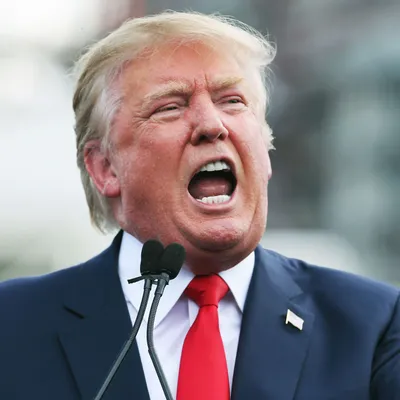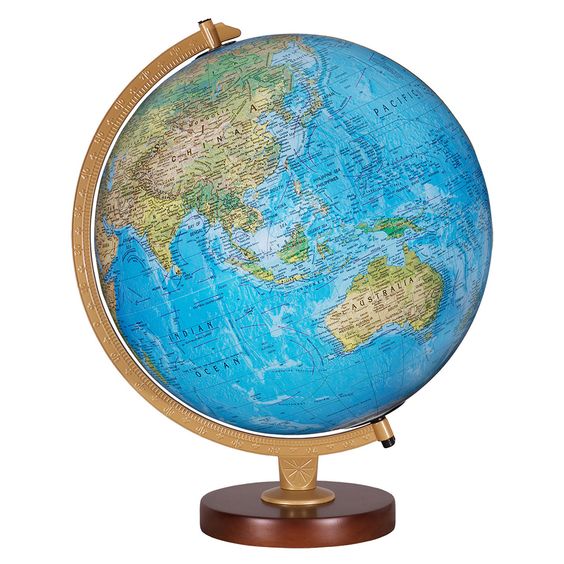
A second Trump presidency would be a disaster for America and the world
By Tom Arms
Vengeance is mine sayeth ex-president Donald Trump. And he is preparing to wreak it on his political opponents.
Beavering away in the back rooms of Trump campaign headquarters are scores of political acolytes drawing up plans for a second Trump Administration.
The first term caught Trump and his supporters unprepared. The 2016 presidential transition is regarded by many as one of the worst in American history with key appointments taking months—sometimes years—to be filled. And when the jobs were assigned the people were either ill-suited, ill-prepared or—in Trump’s opinion—not loyal enough.
According to a range of sources inside and outside the Trump campaign, that will not happen if Donald Trump is returned to the White House in 2024. The right people have been identified; are being briefed and will hit the ground running with policies and legislation that will make Trump’s first term look like a Victorian tea party.
Related News: Donald Trump says he’s ‘very, very, very’ likely to launch 2024 comeback bid, very soon
For a start, the ex-president is out for revenge. He is a man who bears a grudge and acts on it. His key targets are said to be President Biden, his family, former Attorney General William Barr, the FBI, the Department of Justice, the courts, the civil service and anyone who says he lost the 2020 presidential election.
Donning the victim’s mantle, he has already claimed that he is fighting for every little man and woman who—like him–“has been wronged and betrayed. I am,” he told this year’s Conservative Political Action Convention, “your retribution.”
But there is more, as Trump made clear in near-apocalyptic terms in a recent Veteran’s Day speech in which he pledged “to root out the radical left-wing thugs that live like vermin within the confines of our country.”
As for policies, on the domestic front, the ex-president plans to cut taxes, reduce federal spending, dramatically increase the number of political appointments to federal jobs, re-impose his Muslim ban, deport children born in the US of illegal foreign parents, finish building his southern border wall, defund the FBI, impose the death penalty on drug dealers, ban teachers from teaching multi-culturalism and multi-racism, increase oil and gas production, impose a ten percent tariff on all imports and punish doctors who help transsexual patients.
And if anyone dares to take to the streets to protest, Trump says he will invoke the 1807 Insurrection Act to suppress them.
Related News: Former US President Trump makes comeback on Twitter, now called X
On the foreign policy front his plans are even more frightening. He would send American troops to Mexico to fight the drug cartels. He would withdraw from NATO. He would stop aid to Ukraine and he would provide Israel with unquestioning support. As for Taiwan and China he is reported to be undecided on whether to abandon Taipei or go to war for it. But it is clear that the hall mark of a Trump foreign policy would be isolationism rather than engagement and leadership.
This would leave the foreign and security policies of America’s allies in tatters. Countries such as Japan, South Korea, Australia and Saudi Arabia would likely consider arming themselves with nuclear weapons to replace the American umbrella. Thus nuclear proliferation and the threat of nuclear war would increase.
Russia, China, Iran and other autocratic countries would be free to pursue a policy of might is right which would likely to Russian actions against Georgia, Moldova, Lithuania, Latvia, Estonia and Poland as well as Ukraine.
In short, a second Trump presidency would be a disaster for America and the world.
 World Review
World Review
The Sino-American goalposts have changed. Two years ago, the Chinese economy was booming and the US was struggling to emerge from a damaging coronavirus pandemic.
But as Presidents Biden and XI met in San Francisco this week the American economy was booming at 4.7 percent. The Chinese economy was reeling from a burst property bubble and government crackdowns have led to a flight of foreign capital.
When the Chinese star was in the ascendant so were the sabre-rattling “Wolf Warriors”. But the changed circumstances has led to the dismissal of bellicose foreign minister Qin Gang and last month Xi replaced Defense Minister General Li Shangu who was under US sanctions for overseeing the sale of weapons to Russia.
Beijing cannot afford poor relations with Washington at the moment. And Washington—with the problems of Ukraine, Gaza and forthcoming presidential elections, doesn’t want to have to worry about China. All of which could explain why the leaders of the world’s most powerful countries managed a cordial meeting in San Francisco this week.
But will it hold and can they build on it? The question is still hanging. A week before the meeting US and Chinese diplomats held a meeting to discuss each other’s nuclear arsenals. It was the first such a meeting and a good sign.
Climate change is clearly a topic to build on. It is difficult for the two biggest economies to dispute the importance of saving the planet. There are differences on how to handle fossil fuels but agreement on methane gas emissions.
A big topic in the US is opioid abuse, in particular fentanyl. A sizeable chunk of the drug is produced in Chinese laboratories and shipped to America. Last year fentanyl was responsible for 75,000 American deaths. The two leaders agreed to discuss the issue further Xi stressed that the easiest way to stop the problem would be for Americans to stop buying the drug.
Touchiest topic is Taiwan. On that Biden-Xi agreed to disagree. But they did agree to resume communications between each other’s military establishments. These were suspended after the visit to Taiwan of US Speaker Nancy Pelosi. Both sides that it was vital for the opposing militaries to talk to one another to avoid accidents. As Xi put it: “Conflict and confrontation has unbearable consequences for both sides.”
***
The potential spanner in the Sino-American diplomatic thaw is January’s presidential and parliamentary elections in Taiwan.
At the moment the Democratic People’s Party (DPP) controls both the presidency and the parliament and opinion polls show them way ahead to stay in power.
This is not good news for either Washington or Beijing. This is because the DPP is moving Taiwan to declare itself an independent sovereign nation. This is opposed by Beijing because Taiwan would then be able to offer itself as a multi-party capitalist democratic alternative to the one-party autocracy on the mainland.
The US administration would be unhappy because an independent Taiwan would undermine its policy of “strategic ambiguity” which allows it bestow de jure diplomatic recognition on communist China while enjoying de facto relations with Taiwan.
The problem is an old one. It dates back to 1949 when the Nationalist Chinese leader Chiang Kai-shek fled to Taiwan and claimed to represent all of China from the offshore island. Until 1979 successive American administrations agreed with him.
The unilateral independence route is not a foregone conclusion. The Kuomintang Party (KMT) is committed to watering down the independence demands and improving relations with Beijing. This week the party announced it was joining forces with the Taiwan People’s Party (TPP) to fight the elections. The outcome could have far-reaching consequences.
***
State visits are red carpet affairs. Big speeches. Big dinners. Big parades and big hugs between the visiting head of state and their host.
The state visit of Turkish President Recep Tayyip Erdogan to Germany this week is the glaring exception. It is being restricted to a single meeting between Erdogan and German president Walter Steinmeier and a private dinner with Chancellor Olof Scholz.
The reason is that the two countries find themselves at serious loggerheads over the Gaza War.
This was not the case back in May when Scholz invited Erdogan to Berlin. The Turkish president had just been re-elected and Scholz thought that it was important that the two countries cement their close relations.
The Turkish-German connection has had its ups and downs. But neither Scholz nor Erdogan can ignore the fact that they are NATO allies; Germany is home to the world’s largest Turkish diaspora; there are 1.5 million Turkish voters in Germany and Turkey is hosting 3 million Syrian refugees who would otherwise be marching into Europe.
So lots of good reasons to be nice to one another. Then Gaza happened. Erdogan’s electoral base is strongly Islamic and to keep them on board he has refused to condemn the Hamas attacks. Erdogan has even cast doubt on Israel’s right to exist.
Germany’s Holocaust guilt has left successive German governments Israel’s chief supporter in Europe’s political circles. Scholz has called Erdogan’s comments on the Gaza War as “absurd.”
In the meantime, German public opinion—in keeping with the rest of the Western world—is moving away from Israel towards the Palestinian cause and creating political divisions as it does so. The last thing the German government wants is a mercurial Erdogan adding fuel to the fire.
***
It has been a roller coaster ride for British Prime Minister Rishi Sunak this week. And it has all been on the down slope.
It started with the sacking of outspoken far-right Home Secretary Suella Braverman. This was quickly followed by Braverman’s letter of resignation in which she accused the Prime Minister of lying and set herself up as standard bearer of the xenophobic Tory Party right.
Then came the return from the wilderness to the foreign secretary’s job of former PM David (now Lord) Cameron (an appointment which may have ups as well as downs).
And finally, the big one: The UK Supreme Court decision that the Sunak government’s policy of sending asylum seekers to Rwanda was “unlawful.”
This is—or was—the flagship policy of the Conservative government. It was seen as one of the chief fruits of Brexit. For many voters the slogan of “take back control” meant control of British borders which in turn meant significantly reducing the number of immigrants and asylum seekers allowed to stay in the UK.
Braverman and the Conservative right-wing are keen to blame the block to their Rwanda policy on the European Convention on Human Rights and the Strasbourg-based European Court of Human Rights. Their solution: leave the European Convention on Human Rights.
The problem is that the European court is not their only obstacle. The UK Supreme Court ruled against sending asylum seekers to Rwanda because there was a good chance that the Rwandan government would send them to a dangerous third country.
This is called “non-refoulement” (from the French to push or force back). It is banned under the UN Convention on Refugees and three British laws—the 1993 Asylum and Immigration Appeals Act, the 2002 Asylum and Immigration (Treatment of Claimants) Act and the 1998 Human Rights Act.
Rishi Sunak has promised a new treaty with Rwanda and emergency legislation to circumvent the Supreme Court ruling. But the legal eagles say that with two international hurdles and three domestic, the prime minister should cut his losses.
The fact is that the British government’s Rwanda policy was Ill-conceived, poorly planned and abysmally executed.
________________
 Tom Arms is foreign editor of Liberal Democrat Voice. His updated “Encyclopaedia of the Cold War” will be published next week. He also presents the world affairs podcast TransAtlantic Riff https://open.spotify.com/show/3ntjretAKNLZNFpA5ZEGDG
Tom Arms is foreign editor of Liberal Democrat Voice. His updated “Encyclopaedia of the Cold War” will be published next week. He also presents the world affairs podcast TransAtlantic Riff https://open.spotify.com/show/3ntjretAKNLZNFpA5ZEGDG